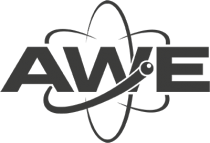NORD Awards Eleven New Grants in Eight Disease States for Rare Disease Research
WASHINGTON, May 19, 2020 /PRNewswire/ -- The National Organization for Rare Disorders (NORD®) has announced new awards through its Rare Disease Research Grant Program, which provides funding to qualified researchers for translational or clinical studies related to the development of new diagnostics or treatments for rare disease. Since the program's launch in 1989, NORD grants have led to the development of two FDA-approved treatments and numerous peer-reviewed publications.
Eleven new research grants have been given to the following institutions and investigators:
For the study of alveolar capillary dysplasia with misalignment of the pulmonary veins (ACDMPV), with funding from the Alveolar Capillary Dysplasia Association, The David Ashwell Foundation and William Akers, Jr. & Georgia O. Akers Private Foundation, Inc.:
-- Frances Flanagan, MBBCh, BAO, Boston Children's Hospital (Boston, MA);
Genetic Determinants of ACD/MPV
For the study of appendix cancer and pseudomyxoma peritonei (PMP), with funding from the Appendix Cancer/Pseudomyxoma Peritonei Research Foundation:
-- Oliver S. Eng, MD, The University of Chicago (Chicago, IL); Assessment
of the Effects of HIPEC on the Genetic Landscape of Peritoneal
Metastases from High Grade Appendiceal Neoplasms
-- Kjersti Flatmark, MD, PhD, Oslo University Hospital (Oslo, Norway);
ctDNA for Monitoring Patients with Pseudomyxoma Peritonei
For the study of autoimmune polyglandular syndrome type 1 (APS-1), with funding from the APS Type 1 Foundation:
-- Rachid Tazi-Ahnini, PhD, The University of Sheffield (Sheffield, UK);
Developing Gene Therapy for Autoimmune Polyglandular Syndrome Type 1
For the study of biliary atresia, with funding from DataRevive LLC:
-- Michael A. Pack, MD, Perelman School of Medicine, University of
Pennsylvania (Philadelphia, PA); Targeting Protein Quality Control
Pathways to Treat Biliary Atresia
-- Sarah A. Taylor, MD, Ann & Robert H. Lurie Children's Hospital of
Chicago | Northwestern University School of Medicine (Chicago, IL);
Transcriptional Profiling of Hepatic Macrophages to Predict Patient
Outcomes in Biliary Atresia
For the study of malonic aciduria, with funding from The Hope Fund:
-- Jiping Yue, PhD, The University of Chicago (Chicago, IL); Development of
Epidermal Progenitor Cell-based Therapy for Malonic Aciduria
For the study of neuroendocrine cell hyperplasia of infancy (NEHI), with funding from the NEHI Research Foundation:
-- Joseph Shieh, MD, PhD, University of California San Francisco (San
Francisco, CA); Analysis of NEHI Susceptibility Using Informatic
Technologies
For the study of new-onset refractory status epilepticus (NORSE) and febrile infection-related epilepsy syndrome (FIRES), with funding from the NORSE Institute:
-- Ingo Helbig, MD, Children's Hospital of Philadelphia (Philadelphia, PA);
Beyond Negative Exome - Understanding the Genetics of FIRES
-- Claude Steriade, MD and Deepak Saxena, MD, New York University School of
Medicine (New York, NY); Gut Microbiome Alterations as a Mechanism of
Immune Dysregulation in New Onset Refractory Status Epilepticus
For the study of primary orthostatic tremor, with funding from public donations:
-- Robert Chen, MA, MB BChir, MSc, Krembil Brain Institute, University
Health Network (Toronto, Canada); Modulating Dysfunctional Cerebellar
Activity with Low-intensity Focused Ultrasound Stimulation for Primary
Orthostatic Tremor
"2019 was a landmark year for NORD's Research Grants Program as we celebrated 30 years of supporting community-funded grants to advance research for rare diseases," said Vanessa Boulanger, NORD's Director of Research. "Our donors are at the heart of our program and their generous support each year drives new evidence and scientific breakthroughs that bring us closer to cures that save lives."
Grants are made possible through the generosity of partners in the rare disease community and supporters who have donated into NORD's research fund. For more information about NORD's Rare Disease Research Grant Program, funding opportunities or to donate to a research fund, visit: rarediseases.org/research.
About the National Organization for Rare Disorders (NORD®)
The National Organization for Rare Disorders (NORD) is the leading independent advocacy organization representing all patients and families affected by rare diseases. NORD is committed to the identification, treatment and cure of more than 7,000 rare diseases, of which approximately 90% are still without an FDA-approved treatment or therapy. Rare diseases affect over 25 million Americans. More than half of those affected are children.
NORD began as a small group of patient advocates that formed a coalition to unify and mobilize support to pass the Orphan Drug Act of 1983. For 37 years, NORD has led the way in voicing the needs of the rare disease community, driving supportive policies and education, advancing medical research and providing patient and family services for those who need them most. NORD is made strong together with over 300 disease-specific member organizations and their communities and collaborates with many other organizations on specific causes of importance to the rare disease patient community. Visit rarediseases.org.
View original content to download multimedia:http://www.prnewswire.com/news-releases/nord-awards-eleven-new-grants-in-eight-disease-states-for-rare-disease-research-301061911.html
SOURCE National Organization for Rare Disorders (NORD)



